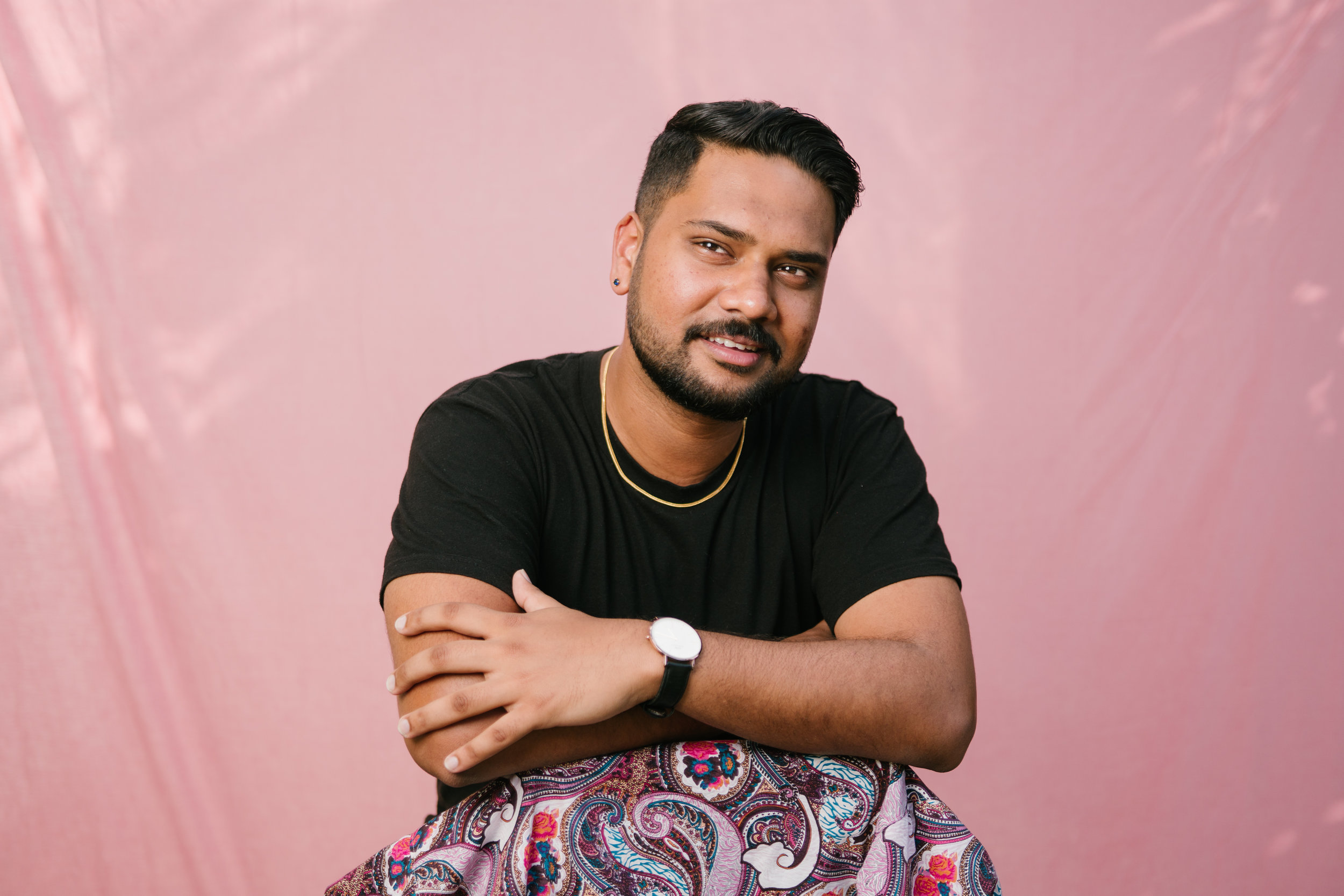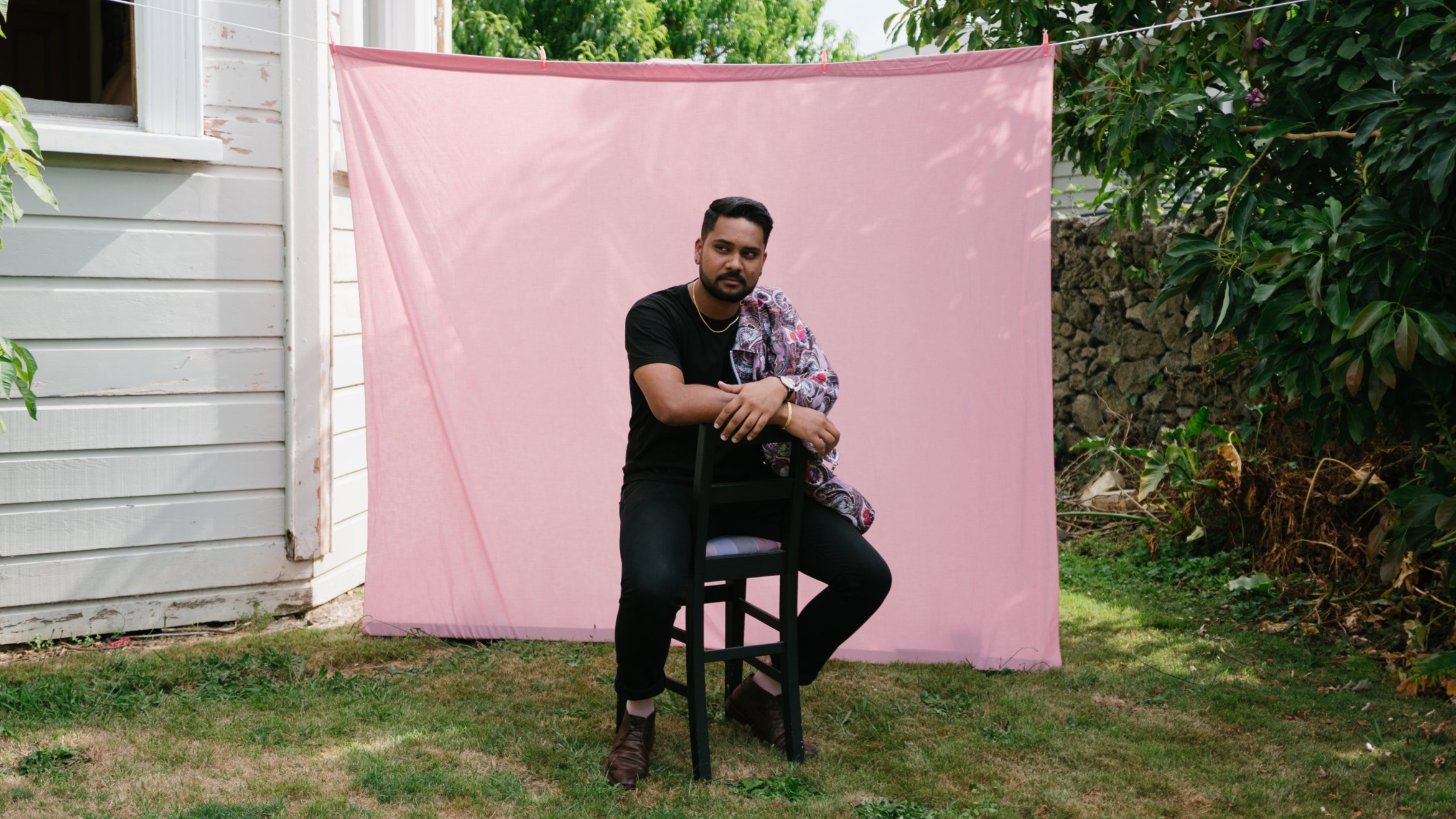“What’s wrong with it?"
“We have to make it more... Indian.”
Bala Murali Shingade has a lot of questions.
Having graduated from the University of Auckland with an MA in Screen Production last year, Bala has been working as a freelance writer, director and actor in Auckland both on stage and for screen. His theatre credits include Dara, First World Problems and A Fine Balance with Prayas Theatre Company. Recent screen credits include writing and directing Brown Boy Lies, his MA thesis film, and 800 Lunches, one of the six Someday Stories short films funded by the Outlook for Someday.
Taking up the challenge to write a full length play as part of PAT’s Fresh off the Page series, the filmmaker and storyteller asks his characters and the audience how they present themselves in different situations, and why;
“The central question of the story is about why people become different people in different contexts. What makes a person who they are? What is identity? This play will explore what exactly it is to be ‘Indian’ or ‘New Zealander’ in the 21st century, from 3 different generations. What makes you who you are? Just because you speak English well, does that make you more of a New Zealander? Just because you don’t go to the temple, does that make you less Indian?”
'What Have You Become?' is his response - an ensemble family dramedy that hopes to explore questions around identity and culture in the context of contemporary Auckland.
The surprise arrival of their grandparents forces a dysfunctional Indian New Zealand family to front an image painted by expectation - that of a normal, happy Indian family. In the ensuing weekend chaos, secrets are spilled, relationships are broken and true identities are revealed.
PAT chats to Bala about his first play below.
Catch the reading on June 5th at The basement, 8.30pm!
Free tickets available here
Photos: John Rata
What inspired you to write this play?
The people around me inspired me to write this play. It’s interesting to watch how people change the way they present themselves in different situations, with different people. I wanted to explore how and why people do this. I grew up watching the epic family drama films of late 90s/early 2000s Bollywood cinema, which were an influence on this piece. I also really enjoy ensemble stories with intertwining storylines and that seemed like a perfect way to explore a group of characters all in conflict with each other.
What were the challenges you faced during the process?
Making all the characters distinct, with their own storylines, their own ways of speaking and their own personalities was a huge challenge. It was also challenging to write a full-length piece – everything I’ve written previously has been short theatre or short screenplays.
What do you think makes a good story?
Compelling characters that we are made to empathise with, in conflict with each other trying to make difficult decisions is always interesting to watch/read about. I love pieces that are comedic but with a bit of serious drama in them too.
How do you want people to feel at the end of your play?
First and foremost, I want people to feel entertained. It would be a bonus for people to feel pleased at seeing characters like their own friends and whanau on stage. Hopefully, if they are satisfied with the story, it will make people reflect on themselves and the people in their lives, maybe question the way they interact with each other.
‘Who’ did you write your play for?
I wrote this play for the community – there is a growing collection of talented, passionate, eager Desi artists in Aotearoa New Zealand that need their own stories to tell that are specific to them and their experiences – stories that resonate with them and their own circles.
What character was the easiest to write? Why?
Rani (the grandma) was probably the easiest to write because she is the closest to being a caricature – everyone knows an aunty or grandma like her in our communities. So I had fun coming up with crazy stuff for her to do/say.
Can you explain any ‘theatrical’ ideas/concepts utilized in the play?
Not sure if there’s an official ‘theatrical’ concept for this, but the entire play takes place in the dining room and kitchen of the Kumar household. The characters all enter and exit at various times and an entire party takes place in the other parts of the house but we only ever see this space and the interactions between our characters that take place there.




